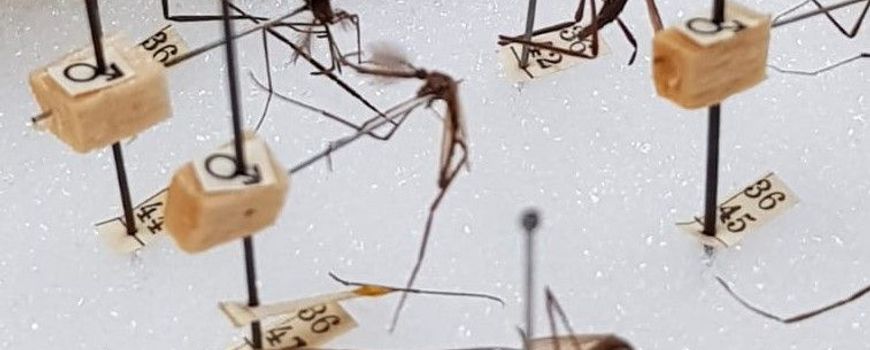Natural history collections contain vast amounts of information about diversity, distribution and ecology of a variety of species. However, much of this valuable information has been lost to researchers due to historical and practical limitations: much of this data is only available on labels and journal notes. To deal with this loss, a team of Naturalis Biodiversity Center information from the handwritten notebooks of Dutch entomologist Johanna Bonne-Wepster has been organized and digitized, unlocking previously inaccessible information and making it readily available to researchers and citizen scientists worldwide.
Tens of thousands of mosquitoes
Bonne-Wepster played a particularly important role in Dutch tropical medicine. Her career lasted from 1917 to 1961, during which time she and her husband conducted research in the former Dutch colonies of Indonesia and Suriname. Bonne-Wepster, one of many non-formally trained women who have been lost to history like this record, collected tens of thousands of mosquitoes and taught herself to identify them. Her thorough research, with detailed physical descriptions of this blood-sucking insect family, aimed to enable even those without taxonomic knowledge to recognize different mosquito species that transmit disease.
Bibiche Berkholst of Naturalis helped to digitize the collection: “Bonne-Wepster collected and documented an enormous amount of mosquitoes in her lifetime. We were able to digitize more than 10,000, which took us many months. Each mosquito had to be checked against the from the field books of Bonne-Wepster. Many specimens were missing localization and/or species labels, which also had to be added. It is very gratifying that this important collection has been digitized and I hope that Bonne-Wepster’s remarkable history will help many female will inspire entomologists – just like me.”
Rediscovered
In the 1920s and 1930s, Bonne-Wepster collected most of her estate. After her return to the Netherlands in 1948, Bonne-Wepster continued her research on mosquitoes, mainly at the University of Amsterdam. Even though she was not academically trained, her enormous contribution to mosquito taxonomy did not go unnoticed, because in 1951 she was awarded an honorary doctorate from that university. In the 1970s, her collection was transferred to the National Museum of Natural History (RMNH) in Leiden, now known as Naturalis. Initially, the museum only obtained the sampled specimens and not the field books with extensive field notes. The field books were thought to be lost until a conservator from the RMNH paid a visit to the elderly Mrs. Bonne-Wepster and was able to retrieve them.
This led to the necessary efforts to digitize these original field books, to use the data contained therein and to link them to the correct copies. For the first time, these archival texts and 52,102 of her notes on mosquitoes have now been released to the public domain through Naturalis and GBIF (Global Biodiversity Information Facility), making them fully available to both researchers and citizen scientists worldwide. In addition to the Bonne-Wepster data, the researchers also digitized detailed information from the smaller amounts of data from collections available at the Zoological Museum Amsterdam Netherlands (1,216 mosquitoes) and the former RMNH (another 2,388 mosquitoes).
Woman in science
The data made available by this project is particularly valuable as it describes both historical and recent data on mosquitoes. They can be used in several areas of research, including spatial distribution estimation, current and future distribution modeling through Ecological Niche Modeling, and for developing much-needed vector control programs. It emphasizes the importance of finding, digitizing and organizing data from the huge number of not yet accessible but very valuable historical documents. By adding them to currently available information, they can provide historical references and significantly improve the study of trends in the distribution of human and animal disease vectors. This kind of work can have a huge impact on current public health research and is also of historical importance.
First author Pasquale Ciliberti says of the data: “I would be very pleased if the data we have unlocked could contribute, even in a minimal form, to understanding the ecology of mosquitoes. For me, as a collection manager, it would be an would be a nightmare if the information in the field books was lost I’m glad this information is online and available to researchers and that we appreciate the work of a woman in science she was officially an ‘amateur’ but she shows that you can achieve a lot with passion and dedication.”
More information
Text: Scott Edmunds, GigaScience a Gigabyte
Photo’s: Naturalis Biodiversity Center
2023-07-30 07:32:50
#NatureToday #BonneWepsters #thousands #mosquitoes #digital


